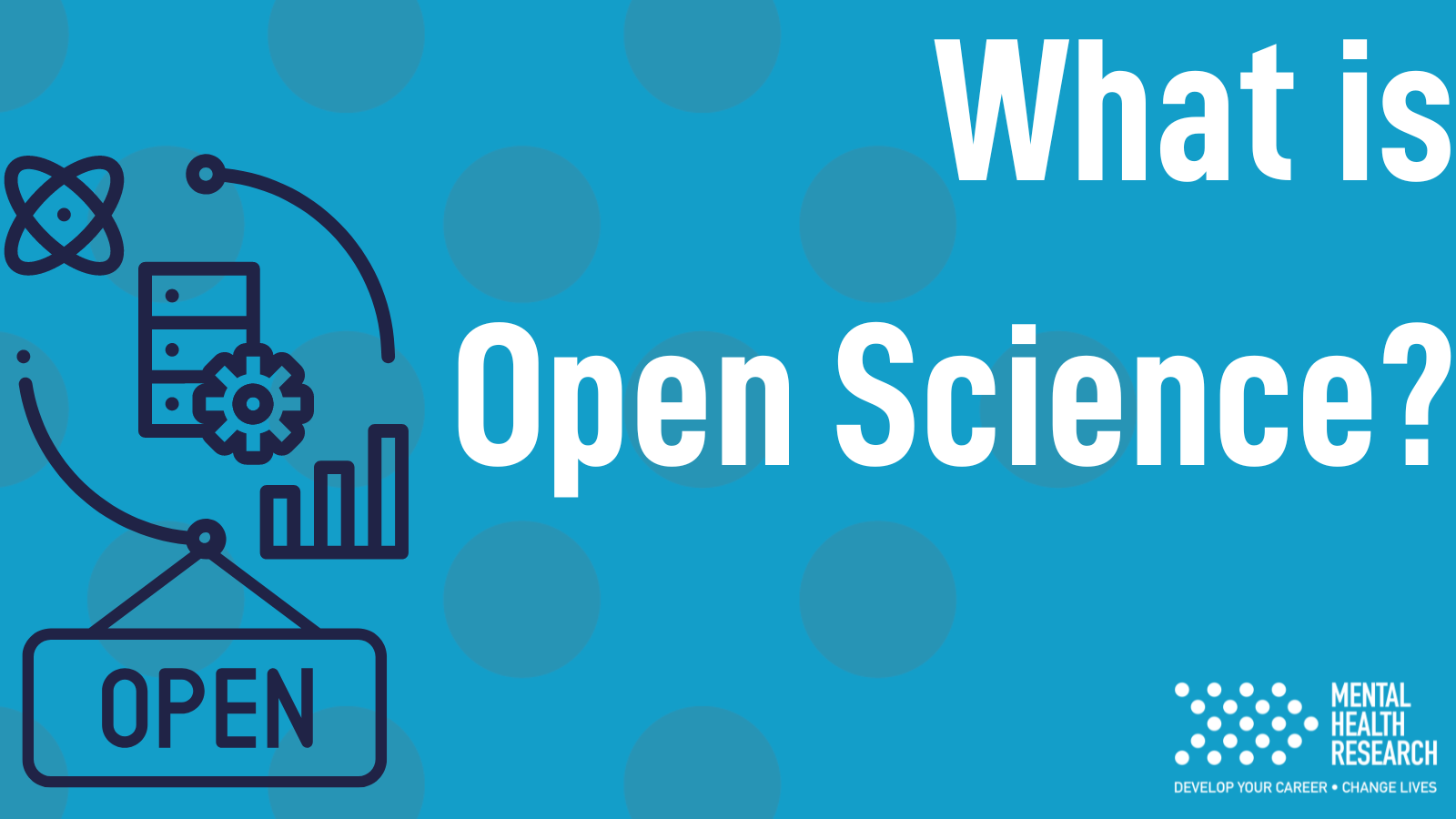
All mental health researchers are rightly concerned about conducting ethical, valuable and reproducible research. Open science is a movement towards making research not only totally transparent, but also accessible. This can only be a good thing for research, and particularly mental health research, right?
In our latest explainer post we briefly talk about open science – what is it and where can you do it.
What is open science?
Open science is a general movement towards more transparent and accessible research in all fields, including mental health research.
Protocol registration is a big part of the open science movement, as is preregistration of hypotheses and expected results.
By registering your protocol you are holding yourself accountable to conduct the study/research the way you said you would in your initial protocol, regardless of the initial outcomes. The intention behind this is that this leads to better science. There are several platforms you can register on which we’ve listed at the end of this article.
Preregistration of methodology, hypotheses and potential outcomes is not just for experimental research projects, you can also register your systematic review or more qualitative work. Platforms such as PROSPERO and INPLASY are good resources for this.
You can also register your preprint articles before submitting them to a journal, or while they are going through peer review.
Positives and negatives
Aside from the benefits that transparency and accessibility in open science provides, there are some more specific benefits to mental health researchers.
A strong positive for preregistration is that you are staking a claim to your research idea when you have it, rather than having to wait for several months, or longer, to conduct the research, get results, analyse, and then publish.
A further benefit is that publishing preprints of your articles before submission to a journal can provide you with earlier peer review.
There are of course some drawbacks. One of the obvious issues with preregistration is that if you have committed to a specific study population or sample size, and you then struggle to access participants, then you will not be able to do the study outlined. It might also feel quite vulnerable to be publicly announcing your research idea – what if someone steals it and gets the project done before and ends up with all the credit? It is a risk, but then, you could have the same research idea as someone and not know until you get guzumped at publishing, so at least this way you have claimed the protocol and idea behind it at an early stage.
However, the intention behind open science is transparency. Hopefully, the things that would have been seen as negatives in research in the past – failure of a protocol, negative results, unexpected results – are actually a normal part of the scientific process.
Learn more
If you want to get more in depth with the topic, or it is already an area of interest, The Royal Society is holding a two-day scientific meeting on 4-5 March 2024. ‘The promises and pitfalls of preregistration’ is free to attend, either in person or online.
Resources
Full service open science platform, including protocol registration and preprint publishing: OSF
Results and data uploading and publishing: figshare – credit for all your research
Systematic Review protocol registration: PROSPERO (york.ac.uk) and INPLASY – International Platform of Registered Systematic Review and Meta-analysis Protocols
Preprint registration: Preprints.org – The Multidisciplinary Preprint Platform and Preprints – PLOS. Other journals may host preprints so it is worth checking with ones you are targeting.
Are you an open science advocate? Or are you a little more sceptical? Do you have a platform or resource we haven’t listed that you love? Let us know over on X/Twitter @MHRincubator
